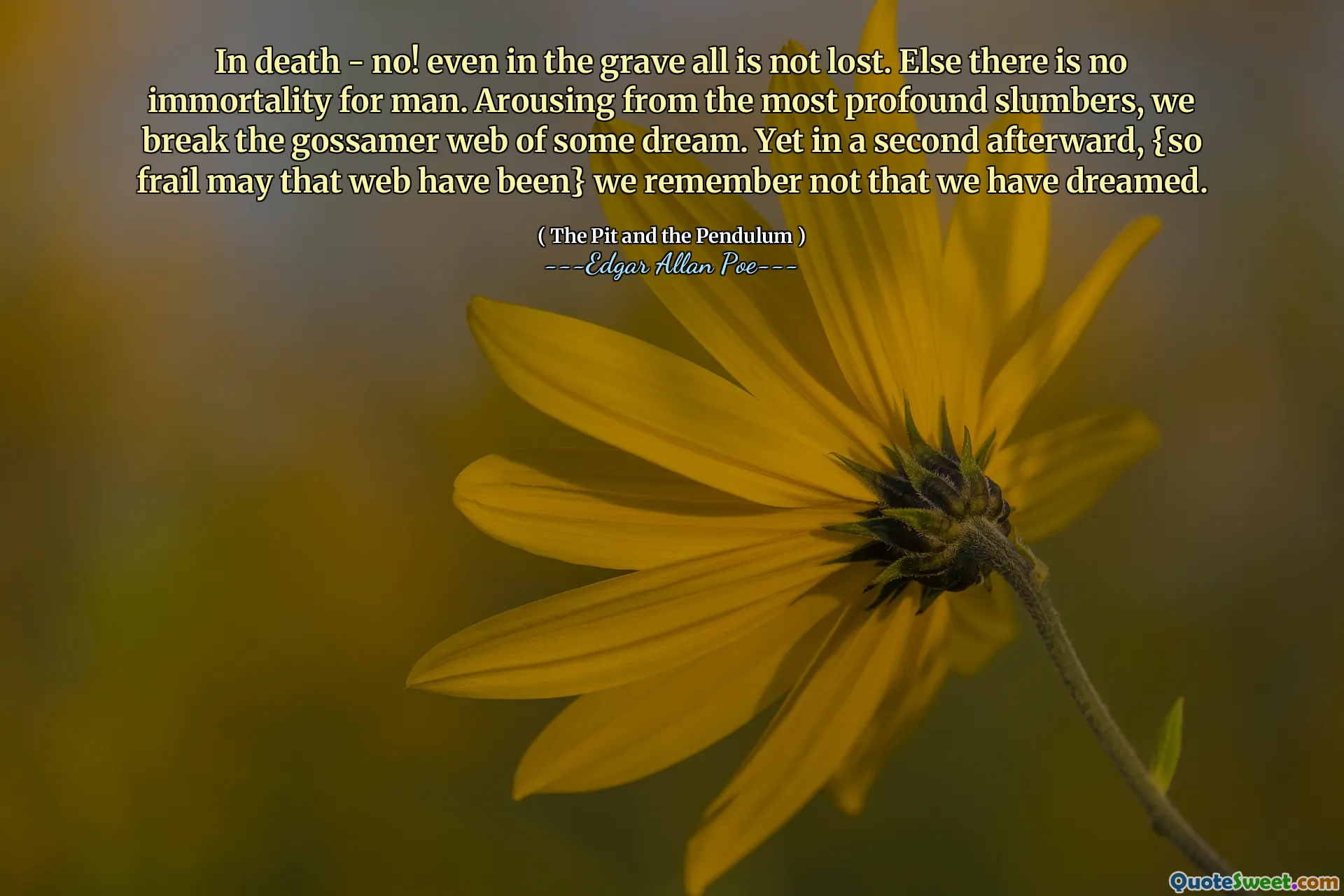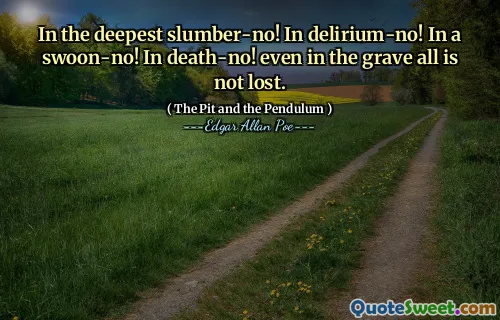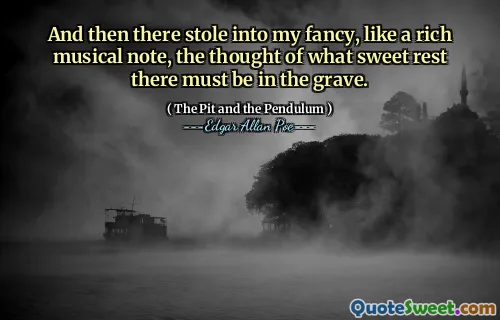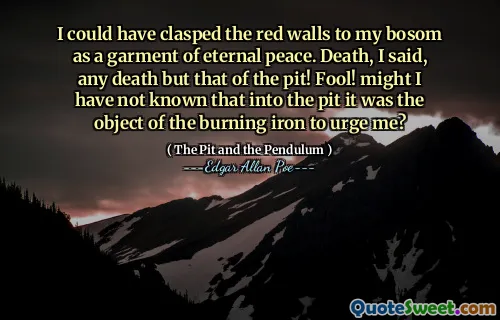
In death - no! even in the grave all is not lost. Else there is no immortality for man. Arousing from the most profound slumbers, we break the gossamer web of some dream. Yet in a second afterward, {so frail may that web have been} we remember not that we have dreamed.
In Edgar Allan Poe's "The Pit and the Pendulum," the contemplation of death raises profound questions about the nature of existence and immortality. The quote suggests that even in death, there is a possibility of continuity, implying that one's essence cannot be entirely lost. This idea challenges the finality often associated with death, proposing that a sense of self or consciousness may persist beyond physical demise.
The metaphor of breaking free from a dream speaks to the fragility of life and the ease with which we can slip into oblivion. Just as we may forget a dream almost immediately upon waking, our memories and experiences might fade, yet they are not entirely erased. Poe's thoughts prompt readers to reflect on the deeper implications of life, death, and the persistence of the human spirit, hinting at a deeper, perhaps eternal connection to existence.




